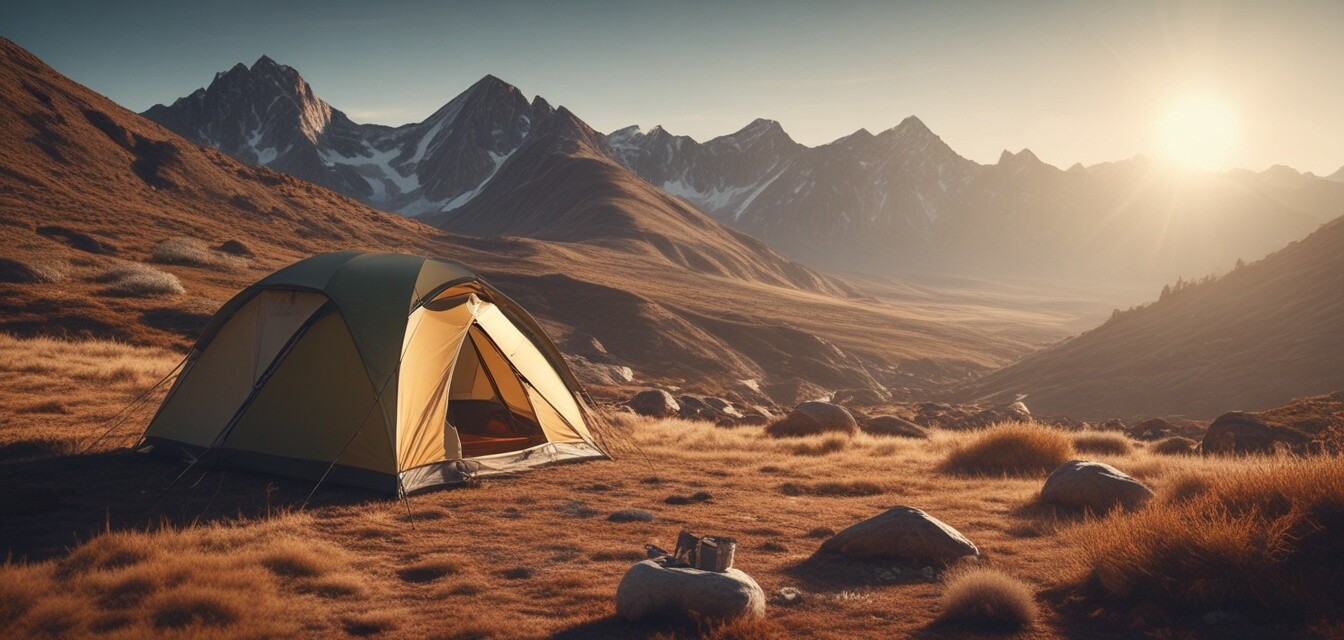
Tips for Camping with Solar Tech in High Elevation
Key Takeaways
- Utilize lightweight, portable solar panels for easier transport.
- Consider the angle of your solar panels for maximum sunlight exposure.
- Stay hydrated, as high elevations can increase dehydration risk.
- Opt for durable tents designed for extreme weather to protect your solar gear.
- Plan your energy usage carefully to make the most of your solar equipment.
Camping at high elevations offers stunning views and quiet surroundings, but it also comes with unique challenges, especially when it comes to using solar-powered gear. Understanding how to effectively utilize solar technology can enhance your camping experience while ensuring you have enough power for your devices. Here are some expert tips to help you make the most out of your solar camping setup in challenging terrains.
Understanding solar energy at high elevations
High elevations can provide more consistent sunlight, but there are factors to consider when utilizing solar gear:
- Increased solar intensity: The thinner atmosphere allows more sunlight to reach your solar panels, but it can also lead to faster panel overheating.
- Weather unpredictability: Weather conditions can change rapidly, necessitating flexible energy management strategies.
- Temperature fluctuations: Extreme temperatures can affect battery performance, so be sure to store batteries appropriately.
Choosing the right solar equipment
Not all solar gear is created equal, especially for high elevation camping. Consider these features when selecting your solar-powered gear:
| Type of Gear | Features to Look For | Recommended Use |
|---|---|---|
| Portable Solar Panels | Lightweight, foldable, durable | Daily energy generation |
| Solar Lanterns | Bright, adjustable brightness settings, durable design | Nighttime lighting solutions |
| Battery Packs | High-capacity, weather-resistant, fast charging | Storing energy for later use |
Setting up your solar gear
Following proper setup techniques is crucial for maximizing solar energy efficiency:
- Find the optimal location: Ensure your solar panels are positioned in an open area away from trees or structures that can cause shade.
- Angle your solar panels: Adjust the angle of your solar panels to capture as much sunlight as possible. A tilt of around 30 degrees is often ideal.
- Secure your gear: Use rocks or stakes to protect your solar panels and lanterns from wind or sudden weather changes.
Energy management tips
To make the most of your solar-powered equipment, energy management is key:
- Monitor your energy use: Keep track of energy consumption to avoid running out of power when you need it most.
- Prioritize essential devices: Decide which devices need power most urgently and charge those first.
- Use energy-efficient appliances: Whenever possible, opt for solar tools that use less power, such as LED lights.
Hydration and health at high elevation
Staying hydrated is crucial when camping at high elevations:
- Drink plenty of water: Higher altitudes can lead to increased dehydration; aim for at least 3-4 liters per day.
- Consider electrolyte supplements: These can help replace lost minerals due to increased exertion at high altitudes.
- Monitor your body's response: Be aware of altitude sickness symptoms and respond appropriately.
Final tips for a successful camping trip
Plan ahead
Before you venture out, ensure you have a thorough plan. Research the area, weather patterns, and suitable camping spots. Check out our buying guides for insight on solar equipment.
Be adaptable
Flexibility will come in handy with unpredictable weather. Always have backup plans and be prepared to adjust your energy usage as conditions change.
Embrace the experience
Camping in high elevations with solar tech can be incredibly rewarding. Enjoy the tranquility and the beauty of nature while harnessing the power of the sun. Don't forget to reach out to others and share your experiences on our news and trends page.
Pros
- Access to abundant sunlight for energy generation
- Environmentally friendly camping option
- Lightweight and portable solar gear fits well in camping packs
Cons
- Potential for sudden weather changes affecting solar generation
- Higher altitude may lead to altitude sickness
- Energy levels can fluctuate without careful management
By following these tips for effectively using solar tech while camping at high elevations, you can ensure a memorable and enjoyable outdoor experience. For more information on related products like portable solar panels or solar lanterns and lights, be sure to explore our other pages.